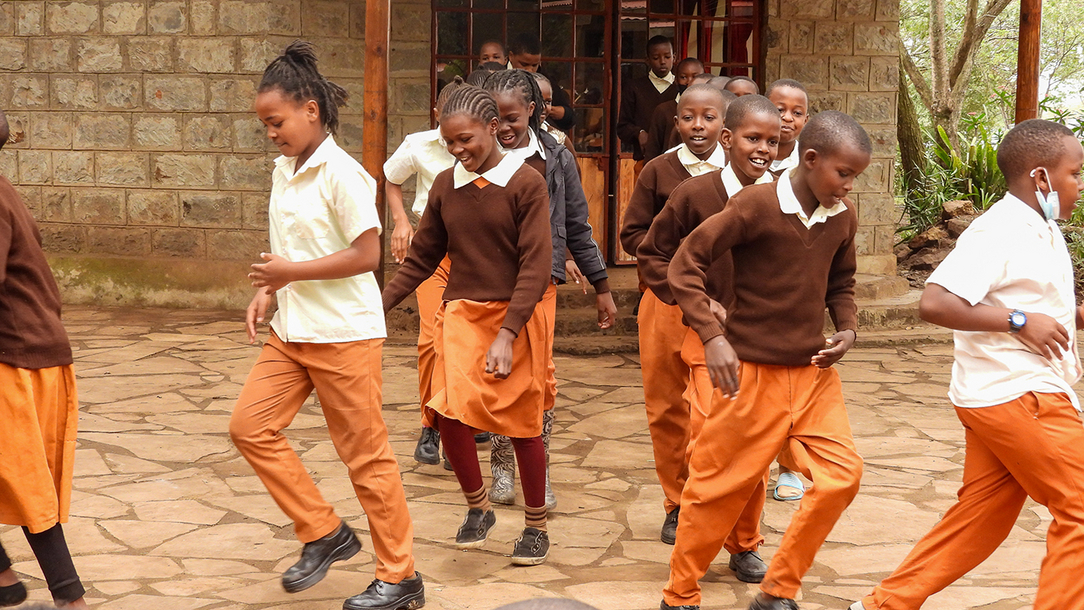
Kenya: Rudolf Steiner School Mbagathi
Personal care supplies and school supplies for the children of the Mbagathi Steiner School
The Mbagathi Steiner school continues to help the poorest children of Kenya albeit with many financial struggles, especially during this time of many regional, national, and international crises. Most of the parents are from the bottom most part of the economy and so they were most affected and became needier with every calamity that struck in the recent years. The families are struggling with the high prices of basic commodities. This leaves them unable to pay any school fees amount or any items that their children need to go to school (and to live in the boarding). Therefore, the school decided to provide all necessary materials for the children in need: With the Childs Kit.
To support a child with a Childs Kit, the school provides a personal care item pack, an education item pack and the school uniform and shoes pack. A full Childs Kit costs 80 euros and includes all three packs. The personal care item pack helps the children to take care of their sanitation. It includes soap, body oil, washing powder, toilet paper, a tooth brush and toothpaste, underwear and handkerchiefs and costs about 20 euros. The education item pack enables the children to follow the lessons, to take notes and to learn. It includes five exercise books, thee pencils, a rubber and a sharpener, 12 colour pencils, an ink pen and a recorder. This costs 20 euros as well. The most expensive pack of the Childs Kit is the uniform and shoes pack for 40 euros. With this the children get a shirt and blouse, a dress, skirt or trousers, a sweater for the cold days, two pairs of socks as well as shoes.
The full Childs Kit for one child costs 80 euros. To provide all 400 children with a Kit, the school needs 32,000 euros. Every Kit that gets financed by donations helps the school a lot.
About the project:
The Mbagathi Steiner school is like a small paradise on earth in south of Nairobi National Park on an 8 hectare property on the endless Maasai grasslands. The school has a total of 400 children with approximately 80% of them being from extremely needy backgrounds and less than 20% being able to cover school fees. Affording basic needs such as food and decent shelter is a problem in these families. They also face additional challenges such as split families, alcoholism and drug abuse.
The school with four kindergarten classes and a primary school that runs from class One to class Nine is run through the help of 55 staff members, 22 of them being teachers while the others belong to the non-teaching staff fraternity. At the moment, 124 children live in the boarding facility. The teachers are Kenyan and receive a Waldorf/Steiner education from the East African Teacher Training program which is hosted in the school during school holidays. In this way they get the best education to take care of the 400 children.
The school property was bought as the school was starting in 1989. Since then further buildings for classrooms and boarding could be built. Now the property has water from a borehole, electricity and Wi-Fi. The school has a small biodynamic farm that comprises a vegetable garden and cows, therefore children receive fresh milk and vegetables as part of their meals.
“Our mission is to impart quality Steiner/ Waldorf education in the individuals so as to promote creativity, responsibility, independence in the children and support a holistic child development in a healthy, safe and sustainable environment. Our mission is also to offer and support underprivileged children in the society achieve quality education.”
